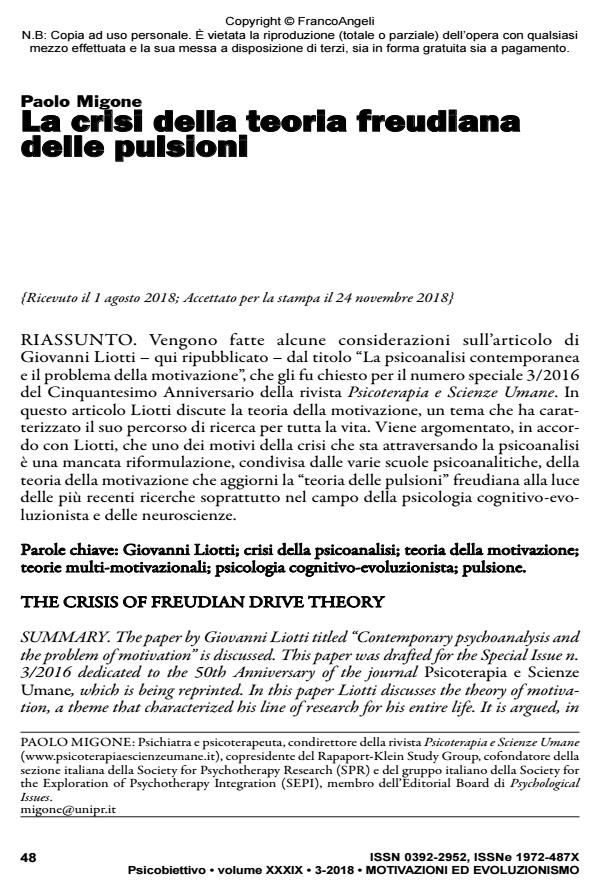The crisis of freudian drive theory
Journal title PSICOBIETTIVO
Author/s Paolo Migone
Publishing Year 2018 Issue 2018/3
Language Italian Pages 5 P. 48-52 File size 86 KB
DOI 10.3280/PSOB2018-003005
DOI is like a bar code for intellectual property: to have more infomation
click here
Below, you can see the article first page
If you want to buy this article in PDF format, you can do it, following the instructions to buy download credits

FrancoAngeli is member of Publishers International Linking Association, Inc (PILA), a not-for-profit association which run the CrossRef service enabling links to and from online scholarly content.
The paper by Giovanni Liotti titled "Contemporary psychoanalysis and the problem of motivation" is discussed. This paper was drafted for the Special Issue n. 3/2016 dedicated to the 50th Anniversary of the journal Psicoterapia e Scienze Umane, which is being reprinted. In this paper Liotti discusses the theory of motivation, a theme that characterized his line of research for his entire life. It is argued, in agreement with Liotti, that one of the main reasons for the crisis of psychoanalysis is the fact the Freudian drive theory has not been adequately reformulated in the light of the recent advances of cognitive-evolutionary psychology and neurosciences.
Keywords: Giovanni Liotti; Crisis of Psychoanalysis; Theory of Motivation; Multi-Motivational Theories; Cognitive-Evolutionary Psychology; Drive.
Paolo Migone, La crisi della teoria freudiana delle pulsioni in "PSICOBIETTIVO" 3/2018, pp 48-52, DOI: 10.3280/PSOB2018-003005